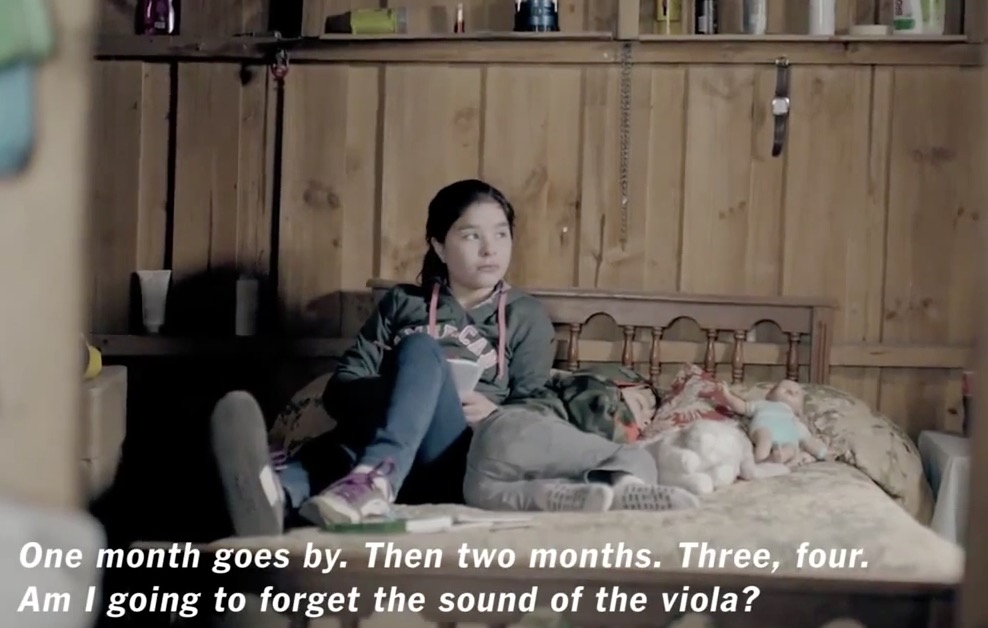
Life was not easy for Melody and Georgina. In their small towns and Georgina’s crowded, one room house there was little room for laughter, serenity, dreams. But music changed that for these young women. Melody says, “Necesitaba una palabra para decir que extrañaba algo que nunca había tenido.” (“I needed a word to express that I missed something that I had never known.”)
Filmmaker Marialy Rivas tells their story of escape from the drudgery of poverty through a 15 minute documentary. Be advised — you might want some tissues before it’s over!
This snippet is from Marialy’s New York Times Op-Ed article:
…Chile has practically no social mobility, for how do you build a better future for yourself without education? This was a question I asked myself while making this short film, in which I explore music’s power to inspire children to escape poverty.
Curanilahue is a small former coal-mining town that until recently was one of the poorest in Chile. In 1996, a local school principal started a youth orchestra with the goal of empowering the area’s local children through music. To many, the idea seemed insane, but with the help of donations and grants, the program began to materialize: Soon, the school had an orchestra full of local children who had never played an instrument before in their lives.
Nearly all of the Curanilahue Orchestra’s children have pursued higher education, and most of them are the first generation in their families to graduate from a university. After one, a violinist named Melody, finished her university degree, she wanted to pass on what she had learned: a passion for music, and along with it, a way out of poverty.
As this Op-Doc shows, Melody became a conductor for the new Children’s Orchestra in Chonchi, a small town on the distant southern island of Chiloé. There she met Georgina, a reserved and very focused 12-year-old. Their passion for music intertwined their lives in a very unexpected way.
